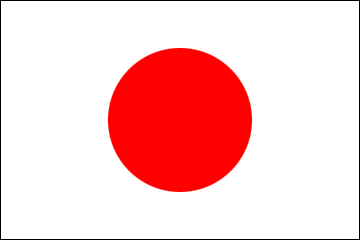Statement by Mr. Hiroyuki Nagahama, Senior Vice Minister of Health, Labour and Welfare of Japan At the 63th World Health Assembly
2010/5/18
Statement by Mr. Hiroyuki Nagahama,
Senior Vice Minister of Health, Labour and Welfare of Japan
At the 63th World Health Assembly
Senior Vice Minister of Health, Labour and Welfare of Japan
At the 63th World Health Assembly
Mr. President,
Director General, Dr. Chan,
Honorable Ministers,
Distinguished delegates,
Ladies and gentlemen,
1. On behalf of the Government of Japan, I would like to highly commend Dr. Chan and WHO for their outstanding leadership in global health.
2. I would also like to express my heartfelt sympathy for those who lost their lives in the Haiti earthquake and other recent natural disasters. Japan highly appreciates WHO’s role in humanitarian response such as in Haiti, and my government is always supportive of such efforts.
3. The pandemic influenza is a serious threat to the global health security. Since last year, WHO and the Member States have taken collective actions to H1N1 pandemic, by making best use of preparedness gained so far. In Japan, we have taken active measures, such as enhanced surveillance, enforcing preventive measures in schools and public facilities, and providing appropriate medical services at community level. Japan successfully contained the mortality rate to 0.15 per 100,000 people, which is relatively low, compared to other countries. At global level, Japan has actively contributed to the efforts in developing countries, including through WHO vaccine distribution. It is essential for WHO and the Member States to strengthen preparedness based on lessons learnt from the most recent experiences. We should also enhance the function of International Health Regulations as well as promote international cooperation.
Mr. Chair,
4. We have only five years left to achieve the Millennium Development Goals. “To protect people’s lives” is one of the policy pillars to which the administration of Prime Minister Hatoyama attaches particular importance. With its rich knowledge and experience, Japan is committed to keep focusing on its support to maternal, newborn and child health and the fight against infectious diseases in developing countries for reducing infant and maternal mortality rate. For this purpose, Japan believes that health systems strengthening such as health workforce development is critical, while stronger collaboration across other sectors such as safe water, sanitation and education, is also essential.
5. As for the infectious diseases, Japan is committed to maintaining our global fight against three major infectious diseases and our efforts toward global immunization. In addition, we should closely watch recent development such as the expansion of polio and multidrug resistant tuberculosis. For global polio eradication, the affected countries and all partners should work in one, with strong political will.
6. Controlling non-communicable diseases is also an important issue. Our new administration has decided to increase the price of tobacco. On May 31st, the World No-Tobacco Day event will be held in Japan for the first time. In addition, we are actively engaged in the World Health Day campaign in Japan regarding healthier cities promoted by the WHO Kobe Center. I look forward to "Global Forum on Urbanization and Health", which will take place in Kobe in this November.
7. Ladies and Gentlemen,
Today, the international community faces more complex health challenges. WHO is expected to serve as a leading organization in coping with them. It is important for WHO to operate more effectively and efficiently, while mobilizing its resources to activities with comparative advantages. To conclude my statement, I would like to express Japan’s willingness to further enhance its cooperation with WHO for more significant impact.
Thank you for your attention.
